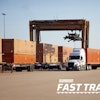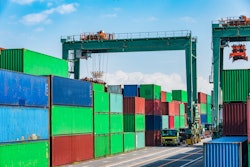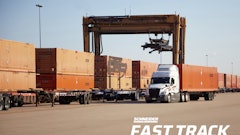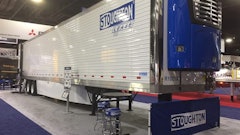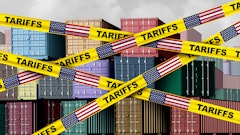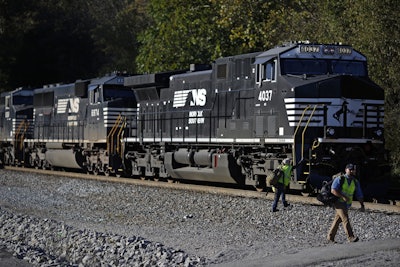
The potential Canadian rail strike is causing more stress to West Coast shippers forced to divert containers to avoid potential operational issues, according to recent data from ITS Logistics.
This month, U.S. Port/Rail Ramp Freight Index reveals Norfolk Southern is reporting significant rate increases in dray and container storage capacity as demand shifts are spreading along the Eastern Seaboard to absorb Baltimore cargo. There also continue to be inland point intermodal (IPI) container dwell challenges in Los Angeles and Long Beach (LA/LB) ports.
“All rail operations throughout North America are being moved to a severe concern due to the potential labor disruption in Canada and IPI congestion in LA/LB,” says Paul Brashier, VP of drayage and intermodal for ITS Logistics. “With the continued container dwell issues in LA/LB and Seattle-Tacoma due to flatcar imbalance for IPI import freight, Dallas ramp operations for both import and export will be adversely affected because of equipment imbalance.”
Key takeaways:
- Just this week, the Canada Industrial Relations Board (CIRB) chose to review whether a strike by railworkers at Canadian National Railway (CN) and Canadian Pacific Kansas City (CPKC) would jeopardize Canadians’ health and safety. As a result, the review delays a possible strike that would be conducted by operating crews from CN and CPKC that was set to begin as early as May 22. According to RailState, the execution of a strike is expected to delay the shipment of $1 billion worth of goods per day in Canada.
“Canada strikes will negatively impact ramps in the U.S. Midwest and Toronto, as the majority of those containers enter North America through Canadian ports,” adds Brashier. “The best operational plan to avoid these challenges is to terminate imports at the port of entry and use dray off, transload, and one-way trucking to get freight into DC networks.”



